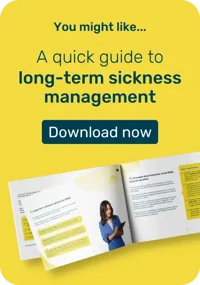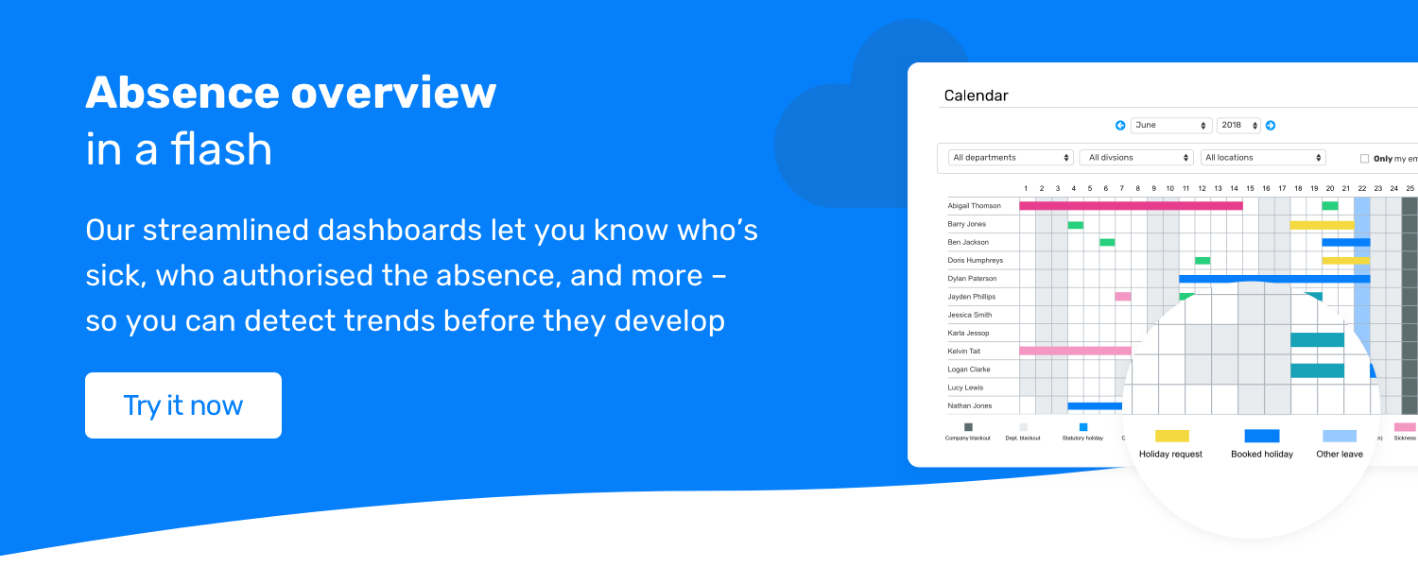Firstly, consider what the purpose of your policy is – essentially, most policies are educating both parties (employees and managers) about the process when someone falls ill.
Robert Burden, Managing Consultant of Kane HR, has offered some key HR advice on the essential features of a sickness policy:
-
Notification timeframes & requirements
> Set out the process of how and when employees need to notify their line manager/HR/designated person of their illness. It’s also important to state how long employees can self-certify their absence for (7 calendar days, including weekends).
> On the 8th calendar day of a sickness absence, employees will need to provide evidence in the form of a fit note (from their GP/medical practitioner).
-
Be clear on sick pay
Do you offer Statutory Sick Pay, or do you offer enhanced sickness pay? If an employee is on long-term sick, is there an amount of weeks where enhanced pay ends, or is this linked to length of service? The eligibility criteria should be clear. (Our sick pay calculator can also help with this).
-
Additional support & resources
Robert advises that there are often missed from absence policies – but where is there a better place to cover what additional support you offer your people? Employee Assistance Programmes (EAP) can help those that are struggling.
How SMEs can manage the business impact of long-term sickness absence
Whilst it’s always important to put your people first, there’s no getting away from the fact that absenteeism costs small businesses money – especially when employees often cover a range of duties within their day-to-day roles.
Here are some tips that small businesses can use to manage (and prevent) the impact caused by long-term sickness absence.
Reactive vs. proactive sickness management
Thinking proactively about long-term sickness can prevent problems further down the line. SMEs can implement formal sickness policies, covering sickness reporting procedures and training for line managers on how to manage sickness absence, as well as the procedure if any absences become longer-term. ACAS offer further guidance on absence policy.
Line manager training
Ensuring you equip and support line managers with the tools & resources to deal with long-term sickness is crucial for any SME. Areas to cover within your policy or training could include:
-
proactively encouraging employee wellbeing as an organisation
-
when to ask for fit notes from GPs
-
what records need to be kept
-
how to manage complex cases
-
how to perform return to work interviews & support an employee returning to work
Skills mapping
If your SME is feeling the impact of an employee off with a long-term sickness, do you have a plan in place for covering their responsibilities within your organisation? Find out what skills mapping is and how it could help.
HR tips for managing return-to-work interviews
Robert Burden, Managing Consultant of Kane HR, has shared 6 key steps for how to manage return-to-work interviews:
-
Empathy – essential for a successful transition back to work, expressing a genuine concern for the employee & what they’ve been through is a firm first step.
-
The return to work process – covering what the process will be, along with any adjustments, gradual returning plans for a phased return etc.
-
Asking for only the relevant details - enquiring around their state of health & only around any medical needs or restrictions that might impact work is important – there’s a fine line between gathering the relevant details and prying. If it doesn’t impact their ability to do the role, the manager/person asking doesn’t need to know.
-
Documentation or medication– anything that could impact the employee in their role should be raised & noted.
-
Set expectations around performance – it’s important to be realistic –employers have to demonstrate that they’re accommodating the employee as much as they can. This includes & signposting to EAPs, additional resources, counselling, or additional training, for example.
-
Schedule a follow-up meeting – employers need to demonstrate that they’re addressing any ongoing needs or support.
Managing sickness absence, the easy way
Breathe’s sickness monitoring system can help SMEs to track sickness absence – giving you one less thing to think about.
The system allows managers to view & track their employees’ sickness (and even allows employees to log their own sickness records) - reducing HR admin and freeing up time for the important stuff.
For key information on what small business need to know, our quick guide to long-term sickness management has you covered.
Alison Benney is the founder of enlightenHR, and Robert Burden is the Managing Consultant of Kane HR. Find out more about receiving professional HR advice from our network of HR Partners today.








